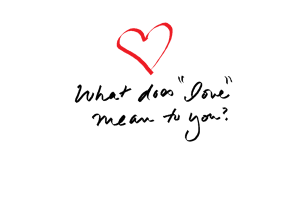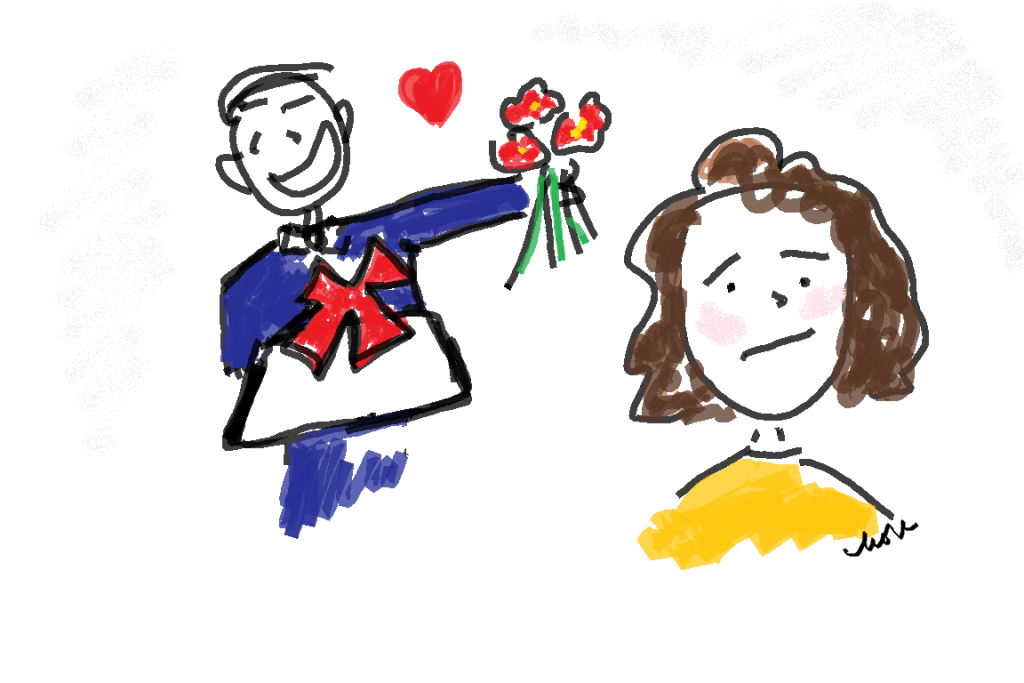In class when we discuss verbal communication (the words that we use to communicate), we talk about how language is both abstract (it denotes something but is not the actual thing) and ambiguous (it has more than one meaning). Yet we human beings believe we are speaking clearly and everyone (particularly those closest to us) should understand what we mean because, dog-gone-it, we said it!
This belief leads us into a lot of trouble because each of us uses language uniquely. Based on our experiences words take on meanings that are known only to us–and even we may not be fully aware of those meanings.
One of my favorite class exercises to clarify this concept starts with me drawing a heart on the board and asking the class, “What does “love” mean to you?”
 Students take a few minutes and list individually on paper how they each define love. Then we begin to
Students take a few minutes and list individually on paper how they each define love. Then we begin to
share our responses and compile them.
As is so often the case in these exercises, I am moved by their definitions. Many talk about partnership. Communication. Honesty. They also define love as “giving, helping, supporting.”
As you might imagine, while there were many agreed upon descriptors, no two people define love exactly the same. Many times as we compile our responses I think, wouldn’t it be interesting if this student’s partner was here? What would that partner say about his/her definition of love?
Years ago I bumped in to the book, “The 5 Love Languages” by Gary Chapman.
The 5 Love Languages: The Secret to Love that Lasts
The basic premise is that each of us learns to speak “love” in one of five ways: “words of affirmation, quality time, receiving gifts, acts of service, and physical touch.” This book is brilliant in helping the reader understand that what I am communicating as “love” may not be received as intended. And conversely, my partner may be attempting to show me love, but I don’t necessarily read that correctly… and sometimes I don’t even see it.
Language is abstract. We choose words to represent a concept, but it isn’t the concept. And language is ambiguous. Each of us has a unique and distinct use for words.
We shouldn’t assume that others can understand us. Instead, when it counts, we should pause in our important conversations and define terms. Ask, “what does “love” mean to you?” and share your own definitions. By sharing this information we set a foundation for clearer communication and healthier relationships. We take out the guess work and allow for a real exchange in meaning.

